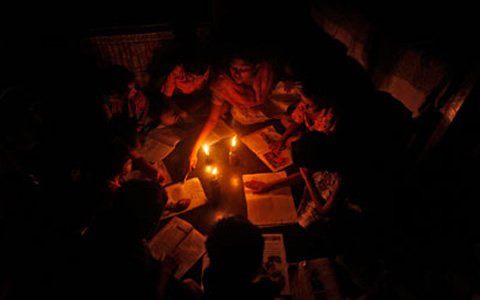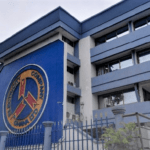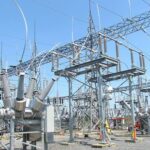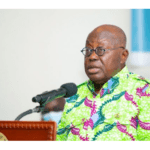Think tank, IMANI Africa, has said behind-the-scene events in the power sector are pointing to a likely return of intermittent power cuts aka dumsor in the country.
A brief analysis by IMANI Africa’s energy desk suggests that high energy debts could be the main cause of possible return to dumsor.
“The fundamentals of the energy sector looks weak, particularly the power sector is just a time bomb waiting to explode.
“High energy sector debt continues to place constraints on the sector’s ability to innovate and reduce end-user tariffs for consumers,” the think tank said.
It adds that “rising debt levels can be attributed to the unplanned procurement of emergency power, political interference in regulatory bodies, high technical and commercial losses, unaccounted revenues, collection rate, and other administrative challenges.”
The think tank notes in the analysis that total government debt owed Independent Power Producers (IPPs) represents approximately 31% of the total energy sector debt and as a result, the Chamber of Independent Power Producers has notified GRIDCo and other power utilities of its planned shutdown until government clears 80percent of its total debt owed.
“In the last four years, the government’s debt owed the IPP’s have grown by $951 million from $270 million in 2016 to $1.44 billion in 2020.
IMANI Africa has said to save the country from another episode of intermittent power cuts, the government must immediately initiate a close working relationship with the Chamber of Independent Power Producers to resolve their grievances, ensure broader stakeholder engagement in the renegotiation process and uphold the principles of transparency and fairness.
Thoughts from the energy desk of IMANI
In the past few weeks, the airwaves have been flooded with debates between the two main political parties about who ended dumsor. While they continue to wrestle for this title, new information reveals the menace is around the corner and may happen very soon.
The fundamentals of the energy sector looks weak, particularly the power sector is just a time bomb waiting to explode.
High energy sector debt continues to place constraints on the sector’s ability to innovate and reduce end-user tariffs for consumers. The rising debt levels can be attributed to the unplanned procurement of emergency power, political interference in regulatory bodies, high technical and commercial losses, unaccounted revenues, collection rate, and other administrative challenges.
In the last four years, Ghana’s energy sector debt has increased from US$2.4billion in 2016 to US$4.67billion in 2020, signifying a growth of 94percent. As a result of unplanned procurement of emergency power with taking or pay clauses, the country pays GHC 500million (US$87.5million ) every year for electricity we do not use. This has worsened the distress of the power sector utility agencies and challenged their sustainability in the long run.
With all this knowledge, political pressure continues to compel the government to reduce electricity tariffs and to some extent provide free electricity. In 2018, the government reduced electricity tariffs by 11percent and halved residential user tariffs in 2020. While this reduction makes governments popular, they end-up crippling the utility companies in addition to the 24percent technical and commercial losses.
Independent Power Producers play a critical role in keeping our homes lighted and industries running. Nonetheless, the government’s failure to meet its financial obligations to these private electricity producers threatens their survival. In the last four years, the government’s debt owed the IPP’s have grown by US$951million from US$270million in 2016 to US$1.44billion in 2020. Total government debt owed IPP’s represents approximately 31percent of the total energy sector debt, about a 20percent increase from the 2016 level of 11percent. As a result, the Chamber of Independent Power Producers has notified Gridco and other power utilities of its planned shutdown until government clears 80percent of its total debt owed.
The Energy Sector Financial Restructuring and Recovery Plan was implemented in 2018 and its Task Force inaugurated to deal with the legacy challenges in the sector, particularly renegotiation of Power Purchase Agreements signed by the past governments. Unfortunately, the political economy has made headway in influencing outcomes of renegotiation and the implementation of the Cash Waterfall Mechanism to deal with the debt in the sector. This has led to an opaque process with the outcome of the work of the task force.
In 2019 the Ministry of Energy carried out a series of engagements under the Energy Sector Recovery Programme with IPPS to negotiate tariff reduction to reduce the cost burden on GoG and bring competitive fairness to the sector via equalizing the tenure and adjusting tariffs of the IPPs. Some IPPs and MOE signed renegotiated term sheets that reduced tariffs in exchange for an extension of the tenure of our country for additional years. The opportunity cost of the forgone reduced tariffs is millions of dollars that would have relieved the country’s current energy sector burden.
The Ministry of Finance, however, rejected the renegotiation process in 2019 by setting up a steering committee to take over the discussions with IPPs on tariff reduction. However, after a year of several discussions and millions of dollars being paid to the UK based agency to oversee the process, no progress has been made. Moreover, the country lost more than $200M between June 19 and Dec.2020 in addition to multi-millions of dollars to UK based companies that brought no progress.
Sadly some IPPs are not even asked for a reduction, some IPPs negotiation process is concluded with the only conversion to gas. The negotiations between Cenpower and GOG was silent on tariff reduction, even though the prices of natural gas has dropped to $6.08/MMBtu. The outcome of the negotiation only converted the Cenpower agreement from using Light Crude Oil to natural gas.
The steering committee ensured parties of equity and transparency; however, this has not been the case. The discussions are not independent of bias or influence as some IPPs are notably untouchable in terms of the reduction of tariffs.
To save the country of another episode of “dumsor”, the government must urgently work closely with the Chamber of Independent Power Producers to resolve their grievances, ensure broader stakeholder engagement in the renegotiation process and uphold the principles of transparency and fairness.






